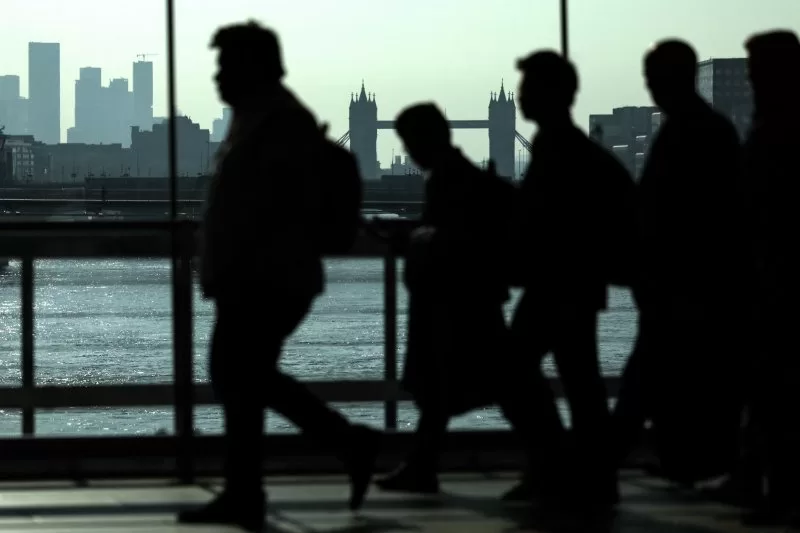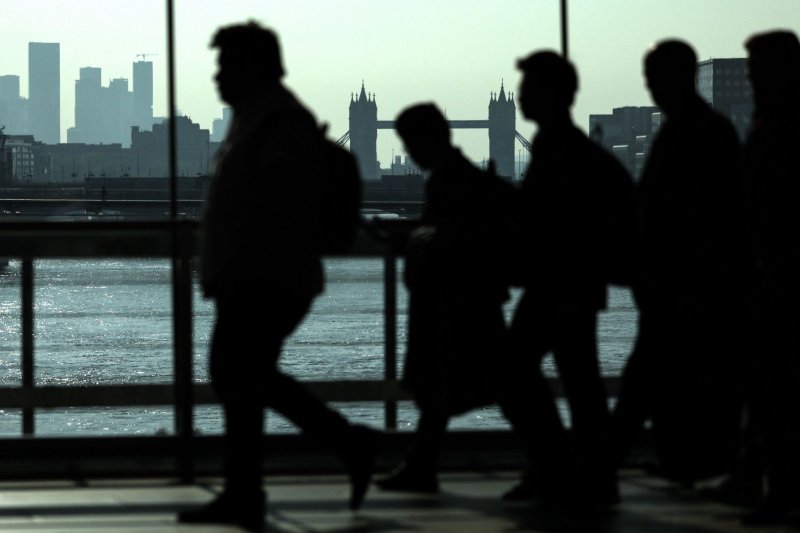A booming services sector helped Britain’s economy exit a mild recession to rebound strongly in the first quarter of the year, growing at its fastest pace since the end of 2021, official figures published Friday show. Photo by Andy Rain/EPA-EFE
May 10 (UPI) — A booming services sector saw Britain’s economy rebound strongly in the first quarter growing at its fastest pace in more than two years, following a technical recession in the second half of 2023, official figures released Friday show.
Gross Domestic Product grew by an estimated 0.6% in the January to March period after contracting by 0.3% and 0.1% in the previous two quarters, the Office National Statistics said in its latest bulletin.
Economists and the Bank of England had forecast the economy would expand by 0.4% in the quarter.
Services grew by 0.7% in the quarter with widespread growth across the sector providing the largest contribution to output as consumer and corporate spending rebounded while the production sector also performed strongly, expanding by 0.8%.
The strong performance by the services sector is being attributed to pressures on consumers’ discretionary spending budgets easing thanks to wage-growth catching and then overtaking inflation.
“The economy grew robustly led, again, by services with wholesalers and the hospitality sector, the health sector and hospitality all doing well,” said ONS Economic Statistics Director Liz McKeown in a post on X in which she noted that much of the growth had come in March at the tail end of the quarter.
McKeown said the strength was broad-based right across the sector from retail to public transport and haulage. Automakers also enjoyed a strong quarter, she said.
However, the construction sector contracted by 0.9% on top of a 0.9% fall in the October to December period. ONS said the sector had been hit by bad weather in February and a fall in new work largely due to a slowdown in private commercial new work as large housing associations focussed on repairs and upgrading.
Prime Minister Rishi Sunak said the economy had “turned a corner” but acknowledged his government had more work to do.
“We know things are still tough for many people, but the plan is working, and we must stick to it,” he said.
Chancellor Jeremy Hunt hailed the numbers saying the economy was on the mend.
“There is no doubt it has been a difficult few years, but today’s growth figures are proof that the economy is returning to full health for the first time since the pandemic.”
Britain had the strongest outlook among its G7 partners in Europe — Germany, France and Italy — over the next six years, “with wages growing faster than inflation, energy prices falling and tax cuts worth $1,127 to the average worker hitting bank accounts,” said Hunt.
Opposition Labor’s shadow chancellor Rachel Reeves poured cold water on the performance saying the economy had gone “from no growth to low growth”.
“This is no time for Conservative ministers to be doing a victory lap and telling the British people that they have never had it so good,” said Reeves noting that per capita GDP was still $376 smaller per person than when Rishi Sunak became prime minister in October 2022.
“My ambition for Britain is so much greater than the economy not being in recession,” she wrote on X.
“When I say ‘economic growth’, I mean thriving high streets, successful local businesses, more jobs paying good wages and lower bills,” the former Bank of England economist said.

